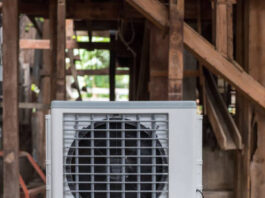In the realm of technological innovation, exoskeletons stand as a remarkable testament to human ingenuity. These wearable robotic devices, once confined to the realms of science fiction, are now on the cusp of revolutionizing numerous industries, from healthcare to manufacturing. The global exoskeleton market size is poised for unprecedented growth, with projections indicating a staggering Compound Annual Growth Rate (CAGR) of 17.2% during the period 2024-2032. Let’s delve into the intricate landscape of this burgeoning market, exploring its outlook, market overview, size and share, emerging trends, industry segmentation, and competitive landscape.
Outlook: Pioneering the Future of Wearable Robotics
The forecast for the global exoskeleton market is exceedingly optimistic, underpinned by a confluence of factors driving demand and innovation. Rapid advancements in robotics, material science, and biomechanics have paved the way for increasingly sophisticated exoskeleton designs that offer enhanced functionality, comfort, and adaptability. Moreover, growing awareness regarding the potential of exoskeletons in augmenting human capabilities and addressing ergonomic challenges in various sectors is fostering widespread adoption.
Market Overview: Unleashing the Potential
The exoskeleton market is witnessing a paradigm shift, propelled by a diverse array of applications spanning healthcare, military, industrial, and consumer sectors. However, medical rehabilitation emerges as a primary growth driver, with exoskeletons revolutionizing the treatment landscape for individuals with mobility impairments. Beyond healthcare, exoskeletons are finding applications in industries such as construction, logistics, and defense, where they augment workforce efficiency and mitigate occupational hazards.
Market Size and Share: Charting Unprecedented Growth Trajectory
The market size for exoskeletons is poised to experience exponential expansion, with estimates indicating a substantial increase in revenue generation. North America, Europe, and Asia are anticipated to capture significant market shares, owing to favorable regulatory frameworks, robust infrastructure, and escalating investments in research and development. The proliferation of startups and collaborations between academic institutions and industry players further catalyzes market growth.
Request a free sample copy in PDF or view the report summary@
https://www.expertmarketresearch.com/reports/exoskeleton-market/requestsample
Trends: Shaping the Future Landscape
Several key trends are reshaping the exoskeleton market landscape, offering insights into emerging opportunities and challenges. Customization and personalization are gaining prominence, with manufacturers leveraging advanced technologies such as 3D printing and machine learning algorithms to tailor exoskeletons to individual user requirements. Furthermore, there is a notable shift towards lightweight and compact designs, enhancing user mobility and comfort without compromising on performance.
Industry Segmentation: Navigating Diverse Applications
The exoskeleton market encompasses a diverse spectrum of applications, each characterized by unique requirements and challenges. In the healthcare sector, exoskeletons are deployed for rehabilitation purposes, aiding patients with spinal cord injuries, stroke survivors, and individuals with neurological disorders in regaining mobility and independence. In contrast, industrial exoskeletons enhance worker safety and productivity by reducing the risk of musculoskeletal injuries and fatigue-related accidents.
The market can be divided based on treatment type, product type, body part type, and region.
Market Breakup by Treatment Type
- Augmentation
- Rehabilitation
Market Breakup by Product Type
- Stationary
- Mobile
Market Breakup by Body Part Type
- Lower Body
- Upper Body
Market Breakup by Region
- North America
- Europe
- Asia Pacific
- Latin America
- Middle East and Africa
Forecast Period 2024-2032: Unlocking Boundless Opportunities
The forecast period heralds a transformative era for the exoskeleton market, marked by sustained innovation and expansion into new application domains. Technological advancements such as the integration of Artificial Intelligence (AI) algorithms and sensor fusion techniques promise to enhance exoskeleton performance and adaptability, paving the way for seamless human-robot interaction. Moreover, collaborations between industry stakeholders and healthcare providers are poised to accelerate the commercialization of next-generation exoskeletons, fostering greater accessibility and affordability.
Competitive Landscape: Fostering Innovation and Collaboration
The competitive landscape of the exoskeleton market is characterized by intense rivalry among key players, each vying for market share through product differentiation and strategic alliances. Established companies such as –
- Ekso Bionics Holdings, Inc.
- ReWalk Robotics Ltd. BIONIK Laboratories Corp.
- BIONIK Laboratories Corp.
- Ottobock SE & Co. KGaA
- Lockheed Martin Corporation
- Others
However, the market is also witnessing the emergence of disruptive startups and research institutions, fostering a culture of innovation and collaboration that drives the industry forward.
Media Contact
Company Name: Claight Corporation
Contact Person: Christopher, Corporate Sales Specialist – U.S.A.
Email: [email protected]
Toll Free Number: +1-415-325-5166 | +44-702-402-5790
Address: 30 North Gould Street, Sheridan, WY 82801, USA
Website: https://www.expertmarketresearch.com



